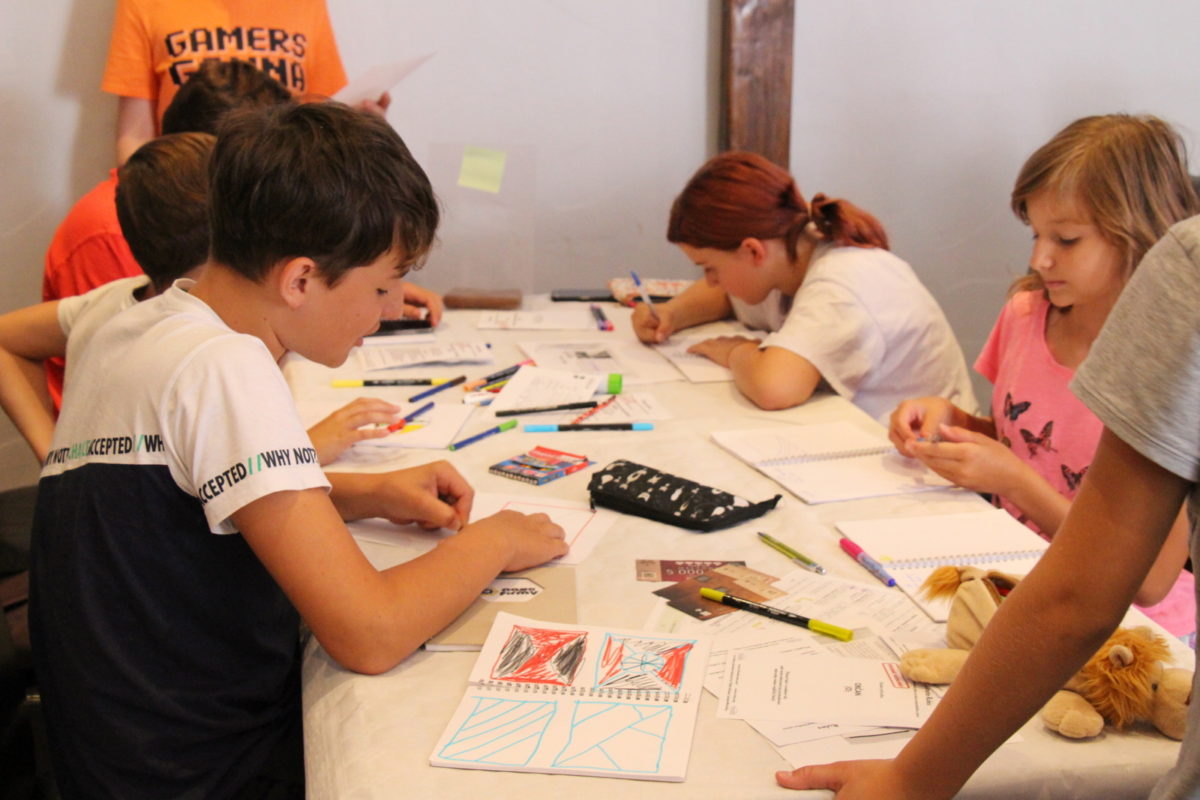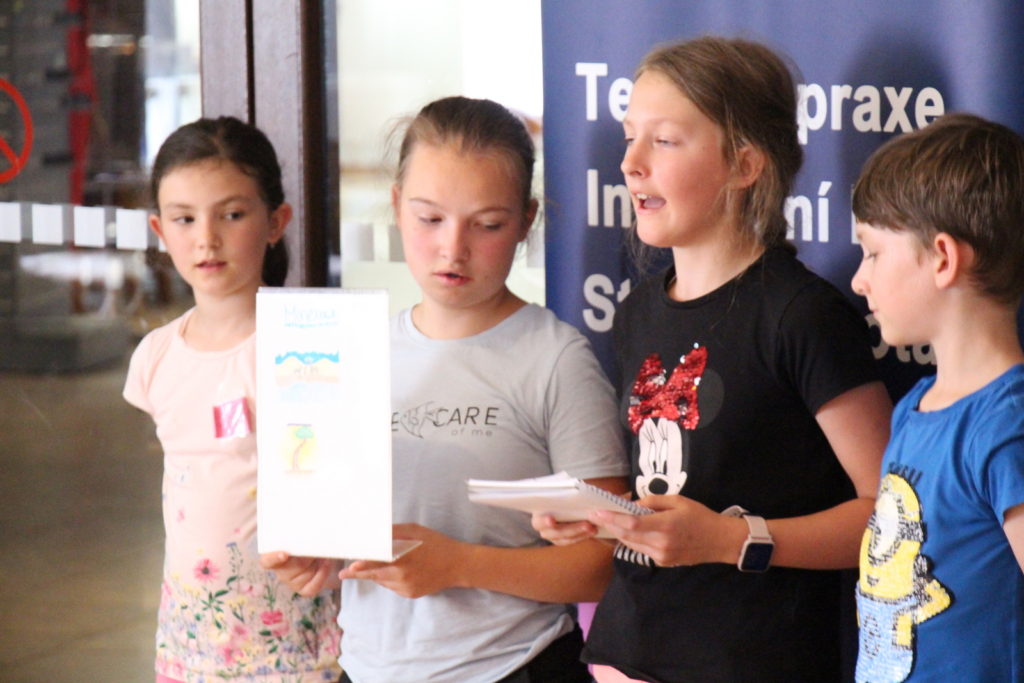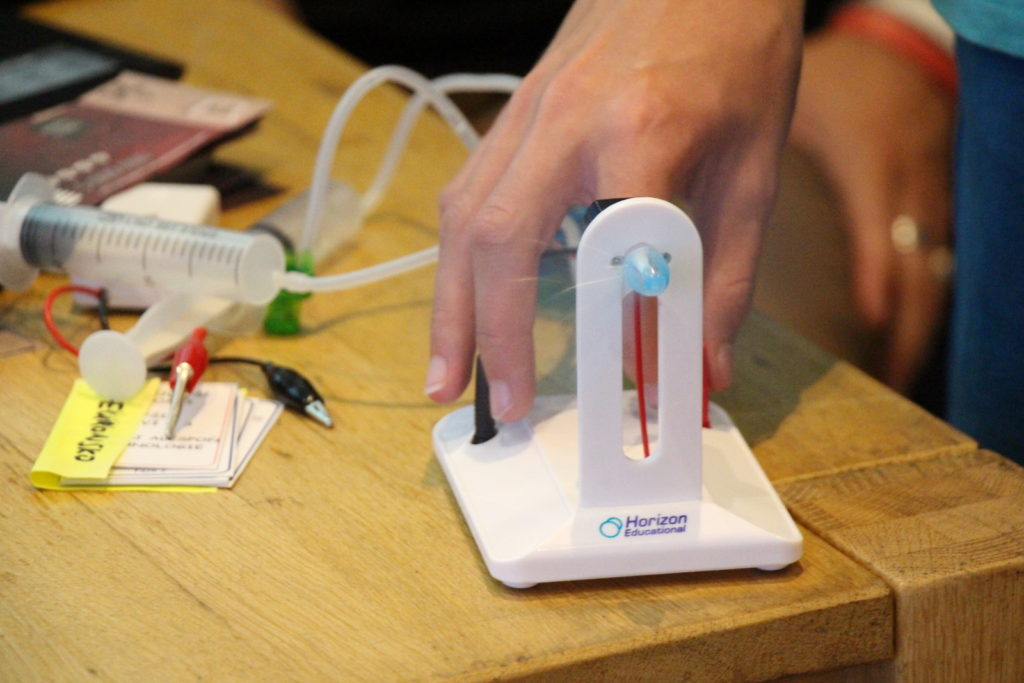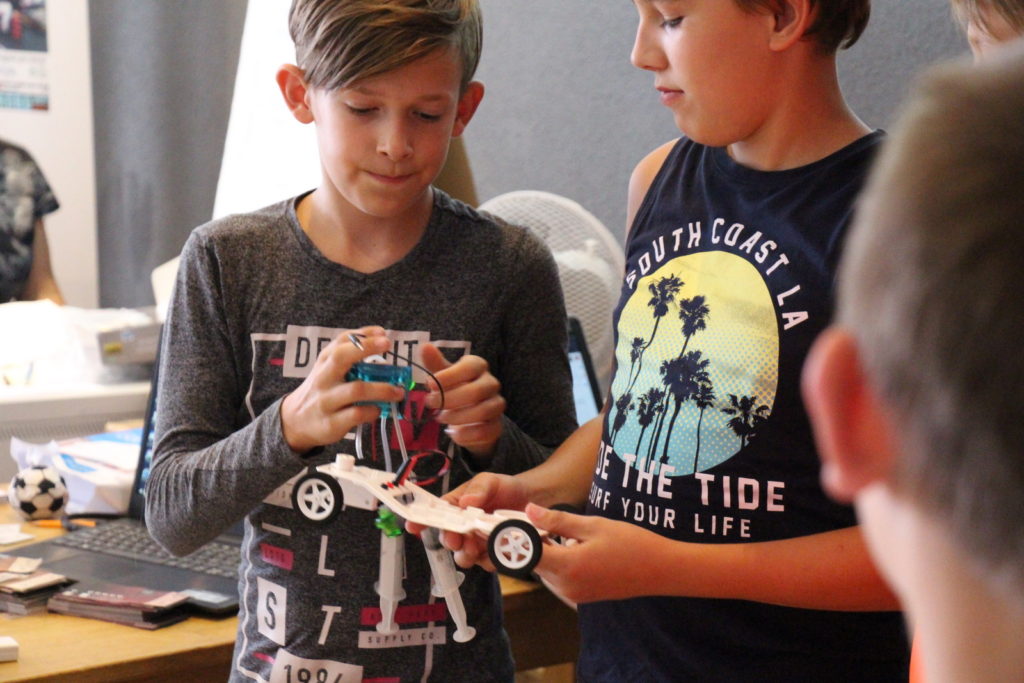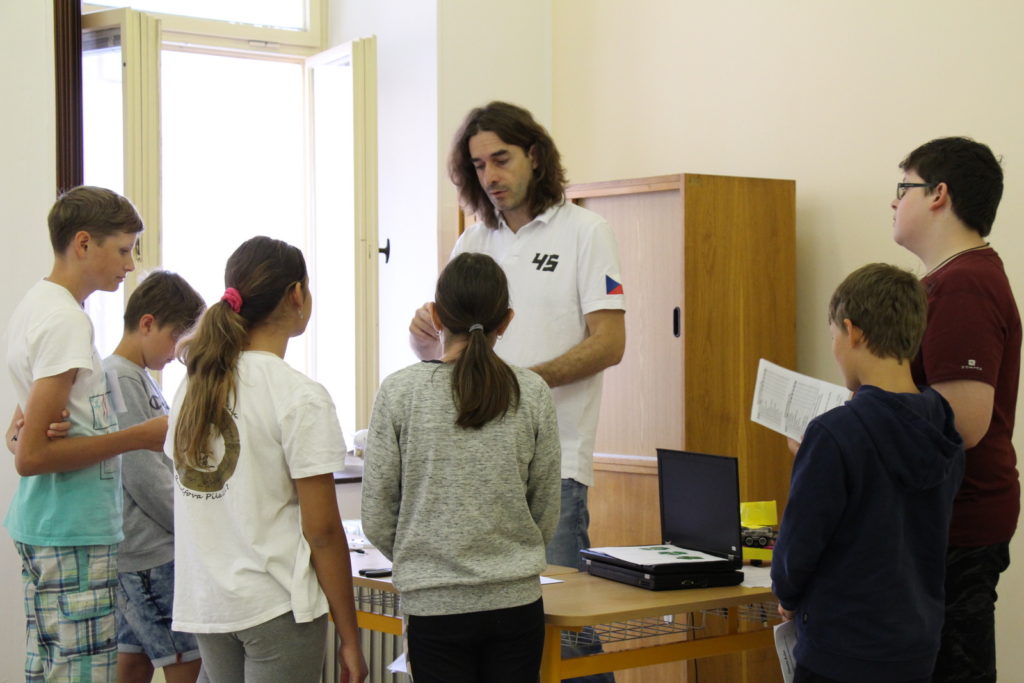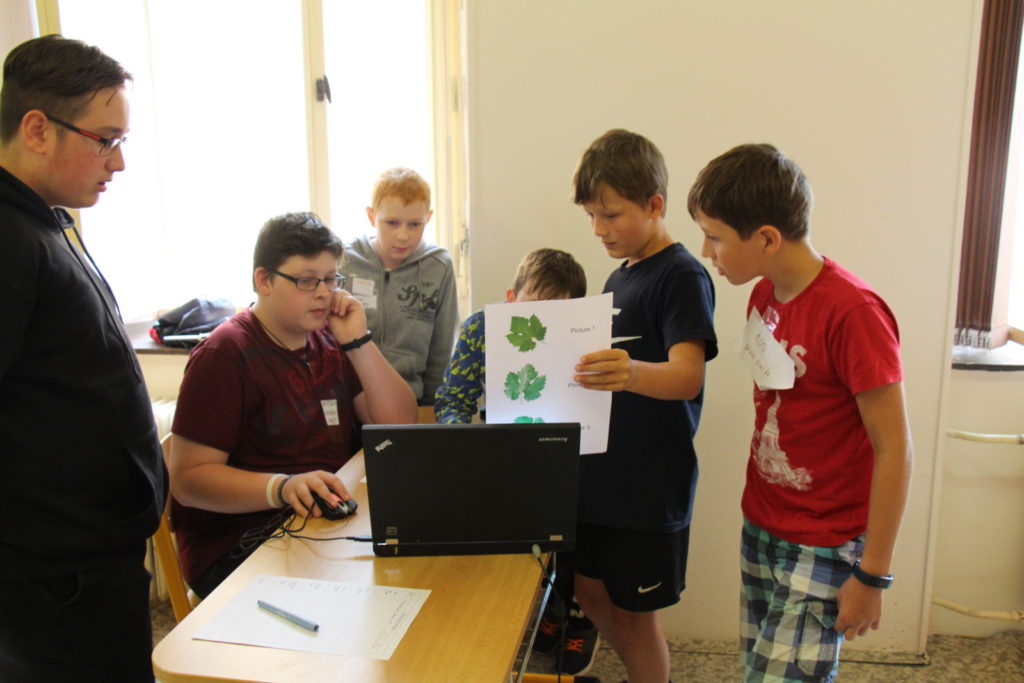Children participating in camps to support entrepreneurship had a unique opportunity to experience the Climate Rules project day.
As the name suggests, the project day addresses global issues with global warming, pollution, etc. Students in individual teams, representing different countries, come up with innovative solutions and work on them with modern technologies.
In their state, everyone represents individual functions, such as the president, the minister of sustainable development, the minister of technology and innovation, the minister of social responsibility, etc.
The game itself sets real obstacles and threats for them, such as a world pandemic, melting permafrost, etc. Therefore, students were looking for a way not only to cooperate as a team, but also across the world with other countries. They make a lot of diplomatic decisions, they learn how to assert their opinion, how to speak convincingly to others, but also to find compromises and agree on common solutions.
“Our state was the first to patent hydrogen technologies in the energy sector, thus ensuring a reduction in greenhouse gases and, in addition, money back from other states for our investment.”
Reviewed by the President of Euronie.
Of course, the students tried modern technology. To combat climate change, they mainly use hydrogen technology with a so-called convertible fuel cell, which makes it possible to produce hydrogen and oxygen from water by electrolysis, and then produce electricity from hydrogen. Another technology was artificial intelligence programming for image recognition to devise solutions for biodiversity conservation. They learned the principles of autonomous solution and also with the possibility of using thermal cameras, for example for comparison or identification of different materials in terms of solar reflectivity.
Thanks to excellent cooperation we have managed to save the planet. We believe that the teams from the project day took away, for example, the idea of using renewable resources or reducing waste based on the circular economy. We they have learned?


